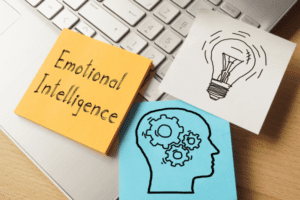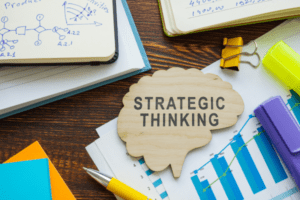In today’s fast-paced and ever-evolving workplace, leadership skills are more critical than ever. As businesses navigate through rapid technological advancements, changing workforce dynamics, and global economic shifts, effective leadership becomes the linchpin for organizational success. Below are essential leadership skills that modern leaders must cultivate to thrive in the contemporary workplace.
1. Emotional Intelligence (EI)
Emotional Intelligence is the ability to understand and manage your own emotions and those of others. Leaders with high EI are adept at fostering a positive work environment, resolving conflicts, and motivating their teams. The key components of EI include:
- Self-awareness: Recognizing your own emotions and their impact on your thoughts and behavior.
- Self-regulation: Controlling impulsive feelings and behaviors, managing your emotions in healthy ways.
- Motivation: Being driven to achieve for the sake of accomplishment.
- Empathy: Understanding the emotions of others and responding appropriately.
- Social skills: Managing relationships to move people in desired directions.

2. Adaptability
The modern workplace is characterized by constant change. Leaders must be adaptable, willing to pivot strategies, and embrace new ways of thinking. Adaptability involves:
- Open-mindedness: Being receptive to new ideas and perspectives.
- Flexibility: Adjusting to new conditions and challenges without compromising core values.
- Continuous learning: Embracing lifelong learning to stay ahead of industry trends and innovations.
3. Effective Communication
Effective communication is the cornerstone of successful leadership. Leaders must be able to articulate their vision, expectations, and feedback clearly and constructively. This includes:
- Active listening: Truly hearing and understanding what others are saying.
- Clarity and conciseness: Conveying messages in a straightforward and understandable manner.
- Non-verbal communication: Understanding and utilizing body language, facial expressions, and tone of voice.
4. Strategic Thinking
Strategic thinking involves anticipating future trends and planning accordingly. Leaders need to have a clear vision and the ability to formulate and execute strategies to achieve long-term goals. Key aspects include:
- Vision: Having a clear sense of direction and long-term objectives.
- Problem-solving: Analyzing complex situations and developing effective solutions.
- Decision-making: Making informed decisions quickly and confidently.

5. Inclusivity and Diversity Management
An inclusive leader values diversity and actively promotes a culture where all employees feel respected and valued. This includes:
- Cultural competence: Understanding and appreciating cultural differences.
- Bias awareness: Recognizing and addressing unconscious biases.
- Equity: Ensuring fair treatment and opportunities for all team members.
6. Delegation and Empowerment
Effective leaders understand the importance of delegation and empowerment. They trust their team members with responsibilities and provide the necessary resources and support. This involves:
- Trust: Believing in the abilities and judgment of your team.
- Empowerment: Giving team members autonomy and encouraging them to take ownership of their work.
- Support: Providing the tools, training, and guidance needed for success.
7. Conflict Resolution
Conflicts are inevitable in any workplace. Leaders must be skilled in resolving disputes fairly and constructively. This requires:
- Mediation: Facilitating discussions between conflicting parties to reach a resolution.
- Negotiation: Finding mutually acceptable solutions to disagreements.
- Patience and impartiality: Remaining calm and unbiased during conflicts.
8. Innovation and Creativity
Innovation is key to staying competitive in the modern workplace. Leaders must foster a culture of creativity and encourage their teams to think outside the box. This includes:
- Encouraging experimentation: Allowing room for trial and error.
- Supporting new ideas: Valuing and implementing creative solutions.
- Creating a safe environment: Where team members feel comfortable expressing their innovative ideas.
9. Tech-Savviness
In an increasingly digital world, leaders need to be tech-savvy. This involves:
- Staying updated: Keeping abreast of the latest technological advancements.
- Leveraging technology: Using digital tools to enhance productivity and efficiency.
- Cybersecurity awareness: Understanding the importance of protecting data and systems.

10. Resilience and Stress Management
Leadership comes with its share of challenges and pressures. Resilient leaders can maintain their composure and lead effectively under stress. This involves:
- Stress management: Practicing techniques to manage stress and prevent burnout.
- Emotional stability: Remaining calm and composed in high-pressure situations.
- Optimism: Maintaining a positive outlook and inspiring confidence in others.
Conclusion
The modern workplace demands a diverse set of leadership skills. By developing emotional intelligence, adaptability, effective communication, strategic thinking, inclusivity, delegation, conflict resolution, innovation, tech-savviness, and resilience, leaders can navigate the complexities of today’s business environment and drive their organizations toward success. Cultivating these skills not only enhances leadership effectiveness but also fosters a thriving and productive workplace culture.
Brigadier Sushil Bhasin is a Military Inspired Leadership Coach, Team Builder, Time Consciousness Facilitator, Global Trainer, and Author with over five decades of experience. With 34 years of military leadership in the Indian Army and 18 years of applying it in the business world, he specializes in helping leaders enhance their leadership skills and contribute effectively to their organizations.


